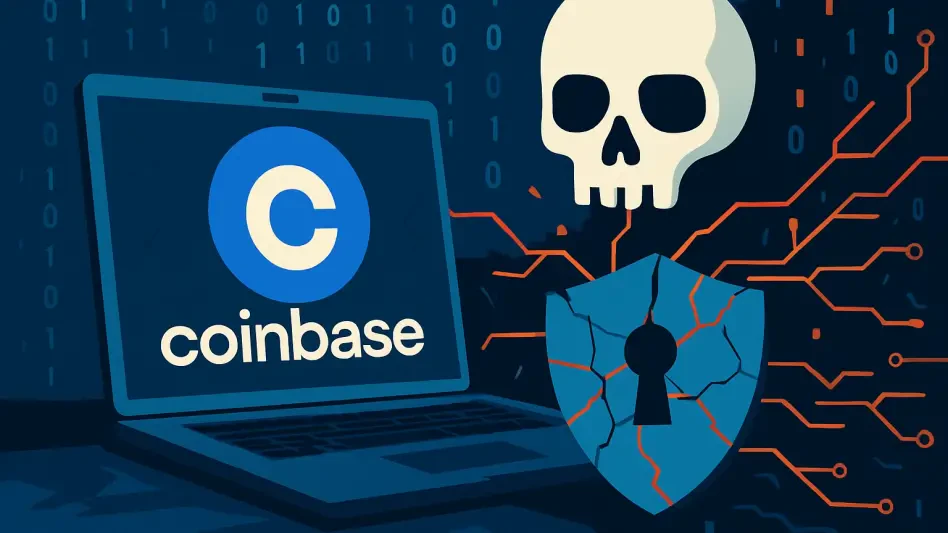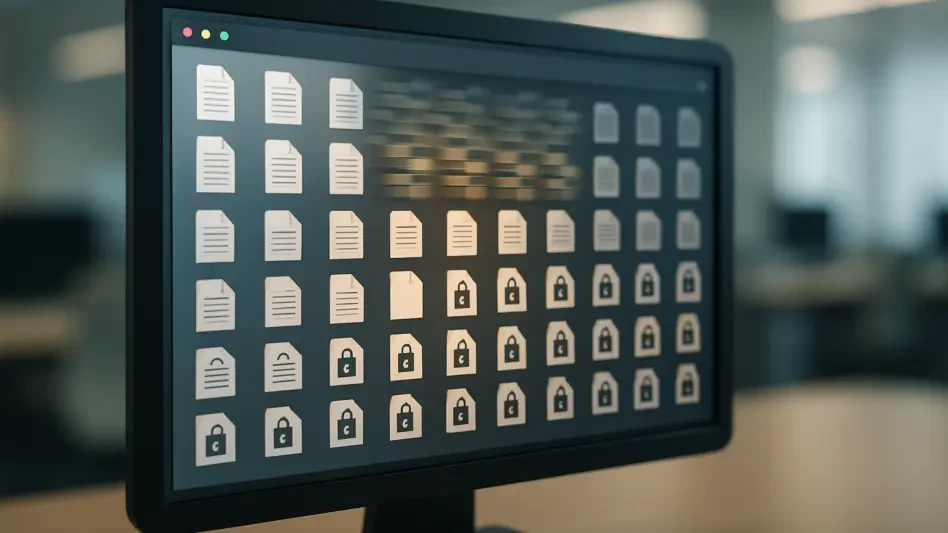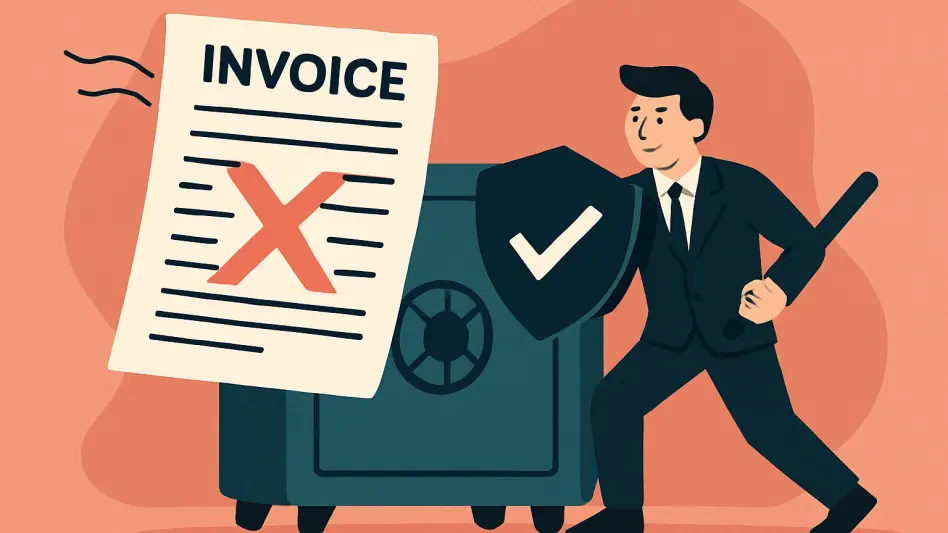Imagine a scenario where nearly 70,000 cryptocurrency users wake up to find their personal and financial data stolen, with potential losses soaring to $400 million, a staggering figure that has rocked the industry. This isn’t a hypothetical—it’s the stark reality of a major data breach at Coinbase, a leading cryptocurrency exchange, allegedly orchestrated by employees of TaskUs, a business process outsourcing firm. The incident has sent shockwaves through the cybersecurity and outsourcing sectors, raising urgent questions about insider threats and corporate accountability. This roundup gathers diverse opinions, tips, and reviews from industry experts, legal analysts, and affected stakeholders to dissect the breach, compare perspectives, and uncover actionable lessons for businesses and consumers alike.
Unpacking the Coinbase Breach: Diverse Perspectives on a Cybersecurity Crisis
What Happened and Why It Matters
The breach, which came to light earlier this year, exposed sensitive information including names, addresses, Social Security numbers, and account balances of thousands of Coinbase customers. Allegations point to TaskUs staff as the culprits behind the theft, sparking debates about the risks of outsourcing critical operations. Industry observers note that this incident underscores a critical vulnerability in the cryptocurrency space, where trust is paramount, and any lapse can lead to devastating financial consequences.
Varied Opinions on the Scale of Impact
While some cybersecurity analysts argue that the breach’s impact is unprecedented due to the sheer volume of compromised data, others suggest that the $400 million loss estimate might be inflated, as not all stolen information has been exploited. A segment of tech commentators emphasizes the erosion of trust in third-party vendors, warning that this could deter companies from outsourcing customer support. Conversely, a few industry voices maintain that such incidents are inevitable in a digital economy and should prompt innovation rather than fear.
Dissecting the TaskUs-Coinbase Crisis: Expert Insights and Critiques
Insider Threats: How Deep Does the Problem Go?
Legal analysts delving into court filings highlight the central role of TaskUs employees in the breach, with one named individual accused of stealing over 10,000 records and selling them for profit. Many experts express alarm at how easily internal access was abused, pointing to a systemic flaw in vendor vetting processes. Some suggest that this case reveals a darker trend of organized insider crime within outsourcing hubs, urging companies to rethink data access privileges.
A contrasting view comes from outsourcing industry defenders, who argue that the actions of a few rogue employees shouldn’t tarnish an entire sector. They stress that most BPO firms operate with integrity and that the focus should be on enhancing employee monitoring rather than abandoning outsourcing altogether. This divide in opinion highlights the challenge of balancing operational efficiency with robust security measures.
Corporate Negligence: Is TaskUs Solely to Blame?
On the issue of corporate responsibility, many cybersecurity professionals criticize TaskUs for allegedly failing to enforce basic data protection protocols, a lapse that plaintiffs in a class action lawsuit claim led directly to the breach. Victims’ advocates point out the real-world harm, including identity theft and personal safety threats faced by affected customers, as evidence of negligence. They argue that cost-cutting in the BPO industry often comes at the expense of security, a trade-off that must be addressed.
However, some business analysts counter that Coinbase shares responsibility for not imposing stricter oversight on its vendors. They suggest that large corporations must take a more hands-on approach in auditing third-party operations, rather than relying solely on contractual agreements. This perspective shifts some of the blame upstream, complicating the narrative of accountability.
Legal Fallout: Transparency or Cover-Up?
Legal experts weighing in on the ongoing lawsuit in a US District Court note the severity of accusations against TaskUs, including claims of attempting to silence internal investigators to hide the breach’s extent. The timing of a $1.62 billion buyout by a major private equity firm just before public disclosure has also drawn scrutiny, with some commentators questioning whether financial motives overshadowed ethical obligations. This fuels a broader discussion on corporate transparency during crises.
On the flip side, a minority of legal observers argue that allegations of a cover-up might be overstated, suggesting that TaskUs’s actions could reflect standard crisis management rather than intentional deceit. They caution against premature judgment until all evidence is presented in court, advocating for a balanced view of the legal proceedings. This divergence underscores the complexity of assigning fault in such high-stakes cases.
Industry Impact: A Wake-Up Call for Outsourcing?
Across the board, industry leaders agree that this breach signals a growing risk of insider threats in outsourcing, especially in regions with inconsistent security standards. Many predict that the incident could spur regulatory reforms, with some advocating for global benchmarks for data handling in BPO contracts. Comparisons to past breaches involving third-party vendors reveal a troubling pattern, prompting calls for systemic change.
Differing opinions emerge on Coinbase’s response, particularly its refusal to pay a $20 million ransom and instead offering a reward for information on the perpetrators. While some praise this as a bold stance against cyber extortion, others question whether it adequately addresses the root causes of the breach. This debate reflects broader uncertainty about how companies should navigate the aftermath of data theft.
Key Lessons: Collective Wisdom for Businesses and Consumers
Drawing from multiple sources, the consensus is that the scale of this data theft and the alleged negligence by TaskUs serve as a stark reminder of outsourcing vulnerabilities. Cybersecurity specialists recommend that businesses implement rigorous background checks and continuous monitoring for third-party staff with access to sensitive data. They also stress the importance of investing in advanced threat detection systems to catch insider risks early.
For consumers, advocates emphasize the need to stay vigilant about personal data security, such as regularly updating passwords and monitoring financial accounts for suspicious activity. Some suggest pushing for greater transparency from companies about their vendor partnerships, empowering users to make informed decisions. These tips aim to bridge the gap between corporate responsibility and individual precaution.
A recurring theme from various stakeholders is the call for stricter industry standards, with many arguing that voluntary compliance is insufficient to prevent future breaches. Legal commentators propose that mandated audits and penalties for non-compliance could reshape how outsourcing firms prioritize security. This collective advice underscores a shared urgency to act before more data is compromised.
Looking Ahead: Shared Visions for Data Security
Reflecting on the insights gathered, it’s clear that the Coinbase breach involving TaskUs employees sparked intense debate and concern across multiple sectors. The incident revealed critical flaws in data protection within outsourcing arrangements, prompting a unified push for accountability and reform. Differing views on blame and response strategies enriched the discussion, highlighting the multifaceted nature of cybersecurity challenges.
Moving forward, businesses are encouraged to adopt a proactive stance by integrating cutting-edge security tools and fostering a culture of transparency with vendors. Consumers, meanwhile, should explore resources on data protection rights and advocate for stronger regulations. As digital transactions continue to expand, staying ahead of insider threats through collaboration and innovation remains a critical priority for all stakeholders.








